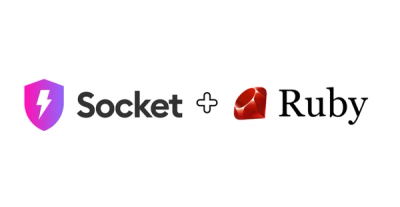
Security News
CISA Extends MITRE Contract as Crisis Accelerates Alternative CVE Coordination Efforts
CISA extended MITRE’s CVE contract by 11 months, avoiding a shutdown but leaving long-term governance and coordination issues unresolved.
The mz npm package provides promisified versions of core Node.js modules such as fs (filesystem), child_process, and others. It wraps these Node.js core modules in promises, thus allowing developers to use async/await syntax for cleaner and more readable asynchronous code. This package is particularly useful for avoiding callback hell and improving code maintainability.
File System Operations
This feature allows for performing file system operations like reading, writing, and deleting files asynchronously using promises. The code sample demonstrates reading a file asynchronously with async/await syntax.
const fs = require('mz/fs');
async function readFile() {
try {
const content = await fs.readFile('/path/to/file.txt', 'utf8');
console.log(content);
} catch (err) {
console.error(err);
}
}
readFile();Executing Child Processes
This feature enables the execution of child processes asynchronously. The code sample shows how to list files in the current directory using the `ls -la` command in a child process, leveraging async/await for handling the asynchronous execution.
const exec = require('mz/child_process').exec;
async function listFiles() {
try {
const stdout = await exec('ls -la');
console.log(stdout);
} catch (err) {
console.error(err);
}
}
listFiles();fs-extra is a package that builds on the Node.js fs module, providing additional file system methods not found in the standard library. It supports both callback and promise-based APIs, making it a versatile choice for file operations. Compared to mz, fs-extra focuses more on extending the fs module's capabilities rather than promisifying existing ones.
execa is a package designed to handle child processes more easily. It provides a promise-based interface, making it simpler to work with asynchronous process execution. execa offers more detailed control over child processes and better error handling compared to the child_process module wrapped by mz.
Modernize node.js to current ECMAScript specifications! node.js will not update their API to ES6+ for a while. This library is a wrapper for various aspects of node.js' API.
Set mz as a dependency and install it.
npm i mz
Then prefix the relevant require()s with mz/:
var fs = require('mz/fs')
fs.exists(__filename).then(function (exists) {
if (exists) // do something
})
With ES2017, this will allow you to use async functions cleanly with node's core API:
const fs = require('mz/fs')
async function doSomething () {
if (await fs.exists(__filename)) // do something
}
Many node methods are converted into promises. Any properties that are deprecated or aren't asynchronous will simply be proxied. The modules wrapped are:
child_processcryptodnsfs (uses graceful-fs if available)readlinezlibvar exec = require('mz/child_process').exec
exec('node --version').then(function (stdout) {
console.log(stdout)
})
mz uses any-promise.
Yes, Node 4.x ships with stable promises support. For older engines,
you should probably install your own promise implementation and register it with
require('any-promise/register')('bluebird').
Nope, probably slower actually.
Sure. Open an issue.
Currently, the plans are to eventually support:
FAQs
modernize node.js to current ECMAScript standards
The npm package mz receives a total of 19,491,104 weekly downloads. As such, mz popularity was classified as popular.
We found that mz demonstrated a not healthy version release cadence and project activity because the last version was released a year ago. It has 8 open source maintainers collaborating on the project.
Did you know?

Socket for GitHub automatically highlights issues in each pull request and monitors the health of all your open source dependencies. Discover the contents of your packages and block harmful activity before you install or update your dependencies.

Security News
CISA extended MITRE’s CVE contract by 11 months, avoiding a shutdown but leaving long-term governance and coordination issues unresolved.

Product
Socket's Rubygems ecosystem support is moving from beta to GA, featuring enhanced security scanning to detect supply chain threats beyond traditional CVEs in your Ruby dependencies.

Research
The Socket Research Team investigates a malicious npm package that appears to be an Advcash integration but triggers a reverse shell during payment success, targeting servers handling transactions.